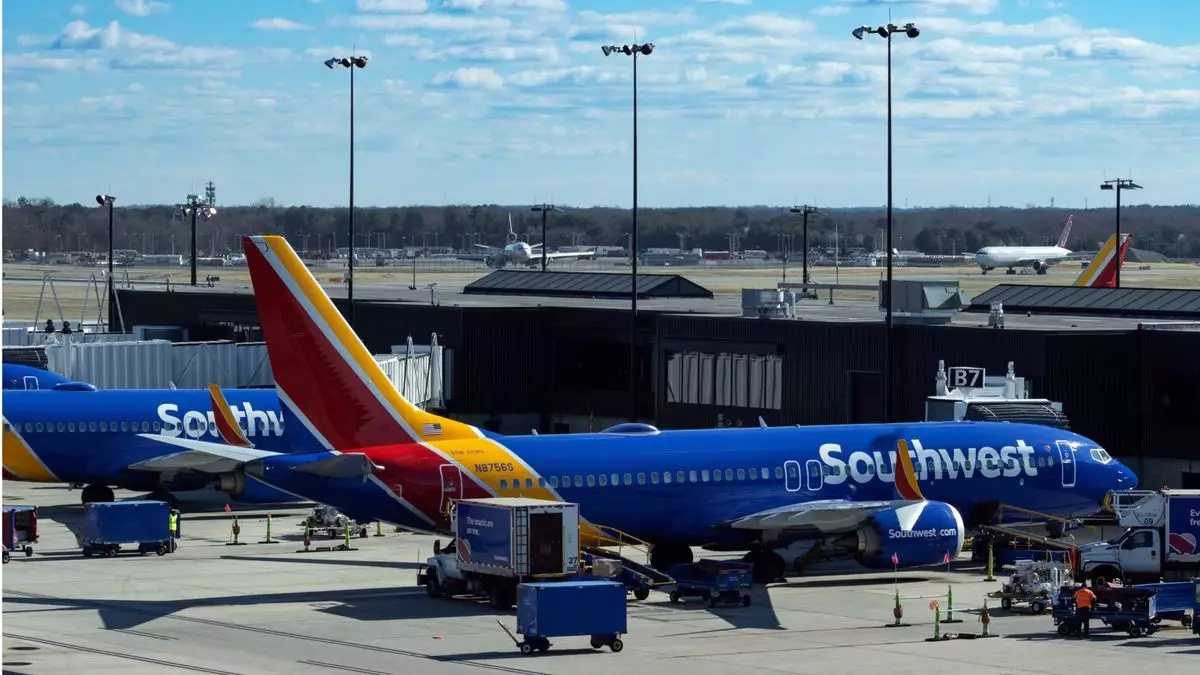Ryan Green, the Executive Vice President and Chief Transformation Officer of Southwest Airlines, is set to leave his position on April 1, as revealed in a recent filing with the U.S. Securities and Exchange Commission (SEC). Green has been with Southwest since 2002, making significant contributions to the airline during his tenure. His departure, announced on February 18, comes during a critical time for the airline, which is navigating a complex landscape of corporate challenges and strategic changes.
Green’s career at Southwest saw him in various key roles, most notably as Chief Commercial Officer from October 2022 to July 2024, and previously as the Chief Marketing Officer for nearly seven years. While his departure could signal a shift in the airline’s approach to leadership and management, it also reflects the ongoing evolution within the company as it grapples with competitive pressures and changing market dynamics.
Notably, the SEC filing that disclosed Green’s departure also amended an earlier agreement with Elliott Investment Management. The modification permits Elliott to increase its stake in Southwest to 19.9%, a significant rise from the prior cap of 14.9%. Last year, Elliott had posed a considerable challenge to Southwest by threatening a proxy battle, pushing for a revamp of the board and the ousting of President and CEO Bob Jordan. An agreement reached in October, however, included the appointment of several new board members, demonstrating the influence that Elliott now holds over the direction of the company.
This concession by Southwest to Elliott is indicative of a larger trend of institutional investors asserting more control over corporate governance. In an era where shareholder activism is increasingly prevalent, companies must navigate these waters carefully to balance investor interests with their long-term strategic goals.
Adding to the company’s challenges, Southwest recently announced an unprecedented cut of 15% of its corporate workforce, impacting approximately 1,750 positions, including eleven members of its senior leadership team. This decision underscores the company’s efforts to adapt to changing market conditions and optimize operational efficiency. Although Green was not among those let go, the reduction reflects a broader strategy aimed at repositioning the airline in a post-pandemic environment, where cost management has become critical for survival.
In a statement regarding the layoffs, CEO Bob Jordan described the decision as “unprecedented” in the company’s 53-year history. Such drastic measures are often indicative of deeper issues within an organization, and in this case, they may signal Southwest’s need to re-evaluate its operational strategies amidst a rapidly evolving airline industry landscape.
As Ryan Green exits and Elliott expands its influence over the company’s operations, the future of Southwest Airlines could be entering a new chapter marked by transformation and adaptation. Stakeholders will be watching closely to see how the leadership changes will impact Southwest’s strategic direction and corporate culture.
With ongoing challenges in the aviation industry, including staffing shortages and fluctuating travel demand, the decisions made in the upcoming months could define the airline’s trajectory. The organizational changes at the top might prompt a fresh approach to leadership, potentially imprinting a new vision on Southwest Airlines during this pivotal time of adjustment and recovery.


Leave a Reply